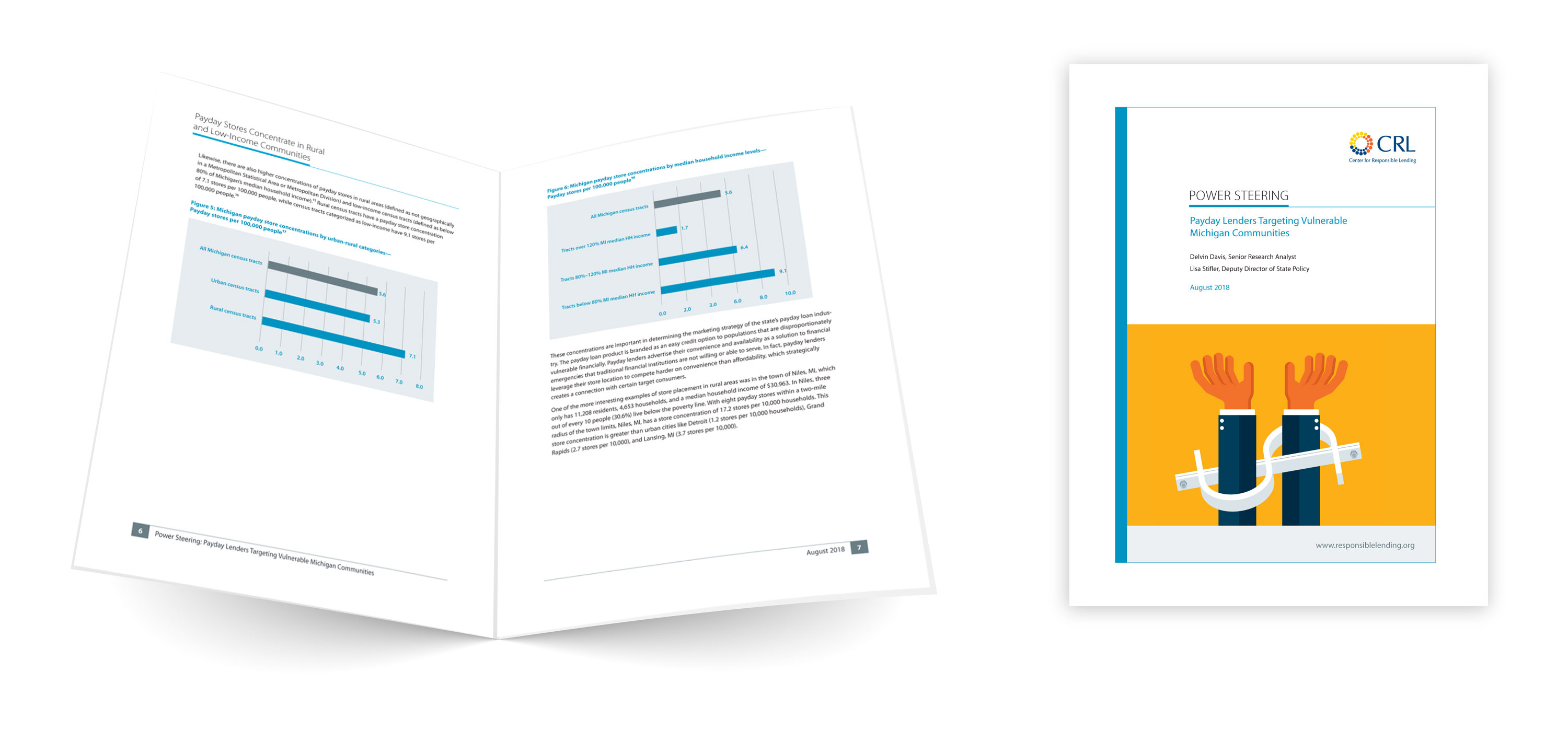Since 2001, we've provided graphic design and editing for dozens of data reports for the Center for Responsible Lending. We’re proud to be a small part of the critical work that CRL is doing nationally to protect consumers from predatory payday lending. In August of 2018, we provided editing and design for this 19-page report.
Titled Power Steering: Payday Lenders Targeting Vulnerable Michigan Communities, this report was written by Delvin Davis, Senior Research Analyst, and Lisa Stifler, Deputy Director of State Policy. The report outlines how payday loans are marketed as a quick-fix solution to financial emergencies. These loans often carry triple-digit interest rates and unaffordable payments, making them extremely difficult to pay off. Consumers who cannot afford their payments run the risk of spiraling into a cycle of debt and other negative financial consequences. Payday loans are associated with a cascade of adverse financial outcomes like delinquency on other bills, bank penalty fees, bank account closures, and even bankruptcy. Nationally, CRL estimates that payday loans cost American consumers over $4.1 billion in fees annually.

Per CRL, "Prior research has shown that payday storefronts tend to locate in low-income neighborhoods and communities of color. This has been the case for several current or former payday-legalizing states, including North Carolina, California, Arizona, Florida, and Colorado. When African-American and Latino households are targeted for such expensive credit options to meet even basic needs, closing the racial and ethnic wealth gap becomes much more challenging.
"The purpose of this paper is to estimate the cost of payday loan fees in Michigan and analyze the locations of Michigan payday loan stores based on the demographics of the communities in which they are located."
The key findings of the report are as follows:
• In recent years, payday lenders have drained over half a billion dollars in fees from Michigan consumers to out-of-state companies. By charging APRs over 340%, payday lenders cost Michigan consumers over $94 million in 2016 and over $513 million over the past five years. Over two-thirds of Michigan payday stores have headquarters out of state.
• Michigan payday lenders disproportionately locate their stores in communities of color. While statewide there are 5.6 payday stores per 100,000 people in Michigan, payday store concentrations are higher in census tracts that have more African-Americans and Latinos. Census tracts that are over 25% and 50% African-American and Latino are 7.6 and 6.6 payday stores per 100,000 people, respectively.
• Michigan payday lenders disproportionately locate their stores in rural and low-income areas. Rural census tracts have a payday store concentration of 7.1 stores per 100,000 people, while census tracts below 80% of the state’s median household income have 9.1 stores per 100,000 people.
The conclusion of the report reads in part:
"The maxim 'it costs more to be poor' has never been more evident than in how payday lenders target financially vulnerable people. The payday loan model offers a solution that tends only to create bigger problems. Michigan’s consumers, many of whom are already fighting to keep their financial house in order, could benefit from strong reform measures to end the debt trap, so that start learning all the steps to buying a house without having debt."
View the full report for details.
